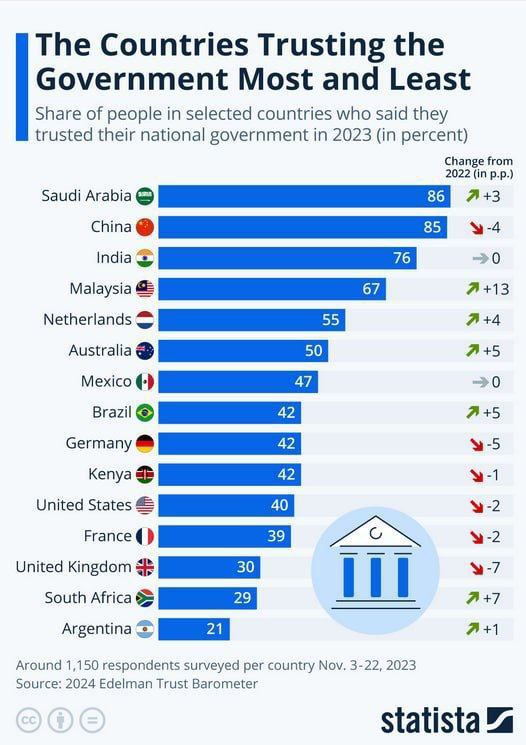WHY POLICIES FAIL BECAUSE LOSS OF GRATITUDE ON THE POPULATION

Governing bodies typically begin their work by designing policies rooted in national interest. While these policies often align with a particular political spectrum a natural occurrence in policy making their failure is not always due to flaws in implementation. Rather, successful execution depends on public support and alignment with national priorities. Even when policies are well-intended, a lack of collective gratitude can lead to a cycle of blame. Through my decades of service, I have learned that even failed policies offer valuable lessons if we choose to approach them with reflection and gratitude rather than blame. The population plays a crucial role in formulating policies, not only by providing support but also by expressing gratitude for them. Without this, the policies may not gain traction on the operational ground, leading to their gradual decline, sometimes so rapid that even the governing bodies struggle to recover them.
So, my perspective on this concept National interest drives the design of policies, ensuring their success. Individuals within the population make these decisions. So the population needs to have gratitude for the current phase, which means wavering support for the policies is necessary for them to be effective in achieving their goals.
There are few concepts that influence the failure of the policies, which are different than our case the loss of gratitude. These concepts include mistrust of the governing bodies and resistance to change. Let’s examine each issue individually, as they could potentially contribute to the understanding of the concept.
Mistrust in governing bodies stems a lack of gratitude for its efforts can lead to skepticism about its intentions. Citizens may question the motives behind policies and initiatives, weakening the bond between the state and its people. This weakens the bond between the state and its people, making it harder for the governing bodies to mobilize support for programs.
Public resistance for change can derail even well-intentioned policies if citizens fail to see their value or feel their voices are unheard. Effective implementation depends on fostering a sense of shared responsibility and mutual benefit, which becomes nearly impossible without public cooperation. Persistent negativity from the public can take a toll on policymakers and public servants, leading to frustration, burnout, reduced innovation, diminished effort, and loss of talent from public service roles. To maintain morale, governing bodies must create channels for open communication and actively seek positive engagement with citizens.
Rebuilding confidence and ensuring cooperation requires proactive actions from both the governing bodies and the people. Real intentions depend on openness in decision-making, easily available information, and public consultation. Policies should be developed not only to meet society’s demands but also to appeal to public concerns by highlighting their instant and long-term advantages. At the same time, people have to actively participate in comprehending and interacting with governance procedures to stop the circle of doubt. Still, appreciating even minor improvement helps to build mutual respect and supports group projects.

Strong trust, cooperation, and moral behavior help governing bodies and communities flourish. Understanding the underlying reasons for mistrust and opposition enables focused remedies meant to allay public uncertainty. Establishing feedback loops and enabling communities to help to build policies will help to foster inclusiveness. Working jointly, governing bodies may successfully carry out plans and provide clear advantages for their people, hence promoting a feeling of shared success. Building a strong and vibrant society depends ultimately on thankfulness and effective cooperation. Because it builds relationships, increases trust, and encourages a culture of gratitude it is essential for social cohesiveness. Expressing thankfulness makes people feel appreciated and respected in both personal and professional contexts, which promotes increased cooperation and teamwork. For instance, leaders who recognize their subordinates’ contributions foster loyalty and dedication in military and defense organizations, which is crucial for preserving morale and operational efficacy.
Because appreciation promotes respect for one another and a feeling of unity, societies that place a strong emphasis on gratitude also have lower levels of conflict. Cooperation is improved by this cycle of positive reinforcement, which is especially beneficial in societies where harmony and teamwork are crucial. Beyond fostering social cohesiveness, thankfulness also helps policies succeed by promoting an attitude of accountability and responsibility among the public and politicians. Governing bodies increase legitimacy and confidence by expressing gratitude for citizen contributions and public service, which enhances policy support and compliance. Recognizing sacrifices and commitment strengthens a feeling of duty of governance, which facilitates the implementation of difficult changes or operational choices. Furthermore, including gratitude into policies like community participation projects or population recognition programs helps maintain governing bodies’ legitimacy and public trust over the long run. Hence, thankfulness is not only a personal virtue but also a potent instrument for developing steady and successful concept in any field.
Effective governance relies on policies shaped by national interests and public concerns, but their success hinges on gratitude. Mistrust weakens the bond between governments and citizens, while appreciation fosters trust, social cohesion, and cooperation. Acknowledging even small improvements strengthens collective efforts and reduces conflict. Policies that incorporate gratitude enhance accountability, responsibility, and long-term public trust, ensuring legitimacy and societal stability.
There will be another small article by the title “IT’S ALL ABOUT VALUE” in two weeks





*You clearly explain how governments lose the trust of their people and outline ways to regain it. I suggest that policymakers consider incorporating these insights into their policies. These valuable concepts may not be widely recognized by some leaders, yet they are available here at no cost for those who seek wisdom.
Strong trust, cooperation, social cohesion, and moral leadership are essential for building and maintaining a resilient relationship between governments and their citizens. I find it particularly interesting that, according to 2023 data, nations such as Kenya demonstrate high levels of trust in their government.”**